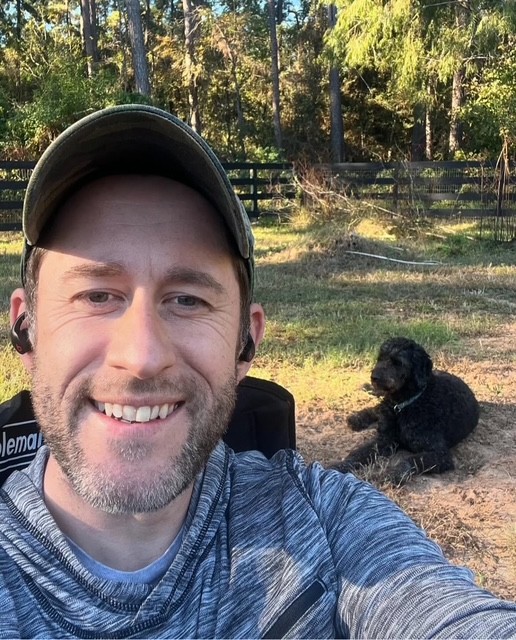Meet Chris Denzler
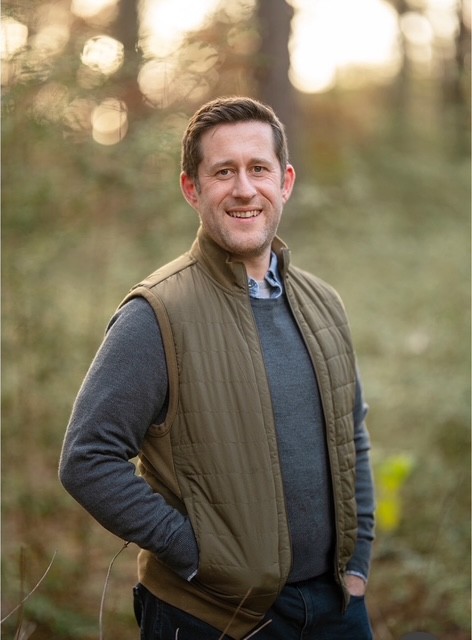

We had the good fortune of connecting with Chris Denzler and we’ve shared our conversation below.
Hi Chris, how do you think about risk?
One piece of conventional wisdom I disagree with is the idea that stress should be avoided because it will kill you. I don’t believe stress itself is the problem—what’s truly harmful is the belief that stress is inherently bad. Psychologist Kelly McGonigal’s research, especially in her TED Talk and book “The Upside of Stress”, reveals that when we view stress as a helpful response, our bodies react in ways that support resilience and performance. A pounding heart and quickened breath aren’t signs of danger—they’re your body preparing you to rise to the occasion. Even oxytocin, a hormone released during stress, promotes connection and support-seeking, turning stress into a catalyst for social bonding. Our lives are not just about surviving—but thriving.
I’ve come to this belief through the lens of my own life journey. Though I’ve never been formally diagnosed with Attention-Deficit/Hyperactivity Disorder (ADHD), I could check nearly every box for the predominantly inattentive presentation. School was a constant struggle, and I was often the target of bullying throughout elementary and middle school. While my father is now one of my heroes, he wasn’t able to be the father I needed growing up. He battled Type I Diabetes and spent much of my adolescence in slow decline from renal failure and retinal detachment, until he passed away when I was 18.
In my 20s, I searched for mentors and father figures, hoping someone would take me under their wing, but I often felt that guidance never came. In my 30s, I learned to reparent myself—to offer the support, structure, and compassion I had longed for. For years, I believed I was inept or defective. I used to say things like, “You know I have ADHD—I can’t remember things,” or convince myself, “I can’t do that, I have ADHD.” I used avoidance and procrastination as shields against criticism and blame. I was a victim to myself.
Now, in my 40s, I’m pushing every limit I can—rewriting the narrative, reclaiming my strength, and living with purpose. I no longer say, “I have ADHD.” I say, “I have symptoms consistent with ADHD,” because I refuse to let a label define my potential. I focus on my strengths more than my flaws. I have chosen to challenge every negative belief about myself. Founding Legend Counseling was a bold bet on myself—and it paid off. I’ve discovered that I already have what I need to build the life I want. It is much harder than I could have thought, but it is much more rewarding than I could have imagined. Facing my future, I feel like it’s just begun. My motto is, “You are not just resilient, you are antifragile.”
Antifragility offers a powerful lens for understanding how adversity can be a catalyst for growth rather than just a hurdle to endure. When individuals or systems are antifragile, they don’t merely bounce back from hardship—they are evolve because of it. Challenges, failures, and disruptions become opportunities to learn, adapt, and strengthen. For example, someone who faces repeated setbacks in their career may develop sharper problem-solving skills, emotional resilience, and a deeper sense of purpose, ultimately becoming more capable than if they had never struggled. Antifragility reframes adversity as essential fuel for transformation, encouraging us to embrace discomfort and uncertainty as pathways to becoming more dynamic, resourceful, and empowered.
Stress responses are the body’s natural way of reacting to perceived threats or challenges, and the sympathetic nervous system (SNS) plays a central role in this process. As part of the autonomic nervous system, the SNS triggers the fight, flight, and freeze response—rapid heart rate, dilated pupils, increased blood flow to muscles, and slowed digestion—all designed to help us react quickly to danger. These physiological changes are automatic and immediate, rooted in survival. However, when stress becomes chronic, the body can remain in a prolonged state of tension, leading to burnout, anxiety, and physical health issues. The goal isn’t to eliminate stress entirely, but to understand and work with our responses to it. By recognizing how stress manifests in both body and mind, we can begin to regulate it—shifting from reactive to intentional. Avoidance may feel like relief in the moment, but over time it shrinks our world, causing us to turn down opportunities not because they’re wrong, but because they feel overwhelming.
In contrast, the anterior midcingulate cortex (aMCC) grows in response to facing stress. The aMCC and the SNS both respond to stress, but they do so in fundamentally different ways. The aMCC operates more like a long-term strategist, evaluating effort versus reward and helping regulate motivation, frustration tolerance, and mental endurance. While the SNS reacts automatically and instantly, the aMCC develops gradually through repeated exposure to discomfort and challenge, strengthening like a muscle via neuroplasticity. This means that while the SNS prepares the body to escape danger, the aMCC helps the mind persist through it, shaping our capacity to endure and grow from stress over time. Together, they form a dynamic duo—one for immediate action, the other for sustained resilience. When we face stressful situations, the aMCC helps us to face stress with courage. This awareness gives us the power to choose resilience over reactivity, and expansion over contraction. It’s through facing stress—not fleeing from it—that we reclaim our agency and rewrite the story we’re living.
Struggles and failures, rather than perfect people, make the best stories. It’s often the most difficult moments that shape us and give our stories depth. When we choose a growth mindset over a fixed one, we stop seeing adversity as something to avoid and start recognizing it as the very terrain where heroes are made. Stress isn’t just a burden—it’s the tension that propels the plot forward. Chances are, it’s not the easy chapters that will define your life, but the ones where you showed up with courage and conviction. That shift—seeing yourself as the protagonist, not the bystander—reframes stress as a signal of purpose. I’d rather live a life where I become the hero of my own story than one spent watching from the sidelines.
Adapting to stress in uncertain times requires more than perseverance—it calls for a growth mindset. I’ve come to understand stress not as something to fear, but as an opportunity to learn, stretch, and evolve. It’s a natural part of life, and its presence signals a chance to grow stronger and wiser. We must not define success by how well we avoid stress, but by how we respond, adapt, and improve through it. Staying rooted in values helps us navigate pressure with clarity and purpose. Stress and fear aren’t failures—they’re feedback. Each challenge offers a lesson, and every setback holds the potential for insight. When we view stress as a teacher, we cultivate resilience, sharpen our focus, and move closer to our goals. Courage, in this mindset, isn’t something you’re born with—it’s something you build through effort and reflection. Growth happens when we choose to act, even when uncertainty and fear are present.
In stressful situations, because of the SNS, it is easy to feel trapped or stuck. To move forward, you have to see life as an infinite game. The infinite game isn’t about winning—it’s about enduring through stress, uncertainty, and constant change. Unlike finite games with fixed rules and clear endpoints, the infinite game unfolds in unpredictable ways, demanding resilience and adaptability. Life, relationships, and personal growth rarely follow a straight path, and the pressure to succeed can feel overwhelming. But those who embrace the infinite game learn to create space—to breathe, reflect, and mindfully consider their options, even when the future feels unclear. They recognize that uncertainty isn’t a flaw in the system—it’s part of the journey. Setbacks become moments to recalibrate, not reasons to quit. In a world that often demands quick answers and constant progress, the infinite game invites us to slow down, stay present, and shape our future with intention, even when the road ahead is foggy. It’s not about being certain—it’s about being committed, curious, and courageous enough to keep going. Life is not a zero sum game, if we are looking for opportunities—there are always options.
Facing the uncertainty of the future requires more than just endurance—it calls for meaning, courage, and a refusal to let fear or avoidance dictate our path. In 2025, people are grappling with a wide range of stressors: financial problems, health issues, the loss of loved ones, work-related burnout, relationship conflicts, parenting challenges, global instability, technological overload, major life changes, and the crushing weight of unrealistic expectations. These pressures are real and often overwhelming, but they also present an opportunity to grow, adapt, and redefine what resilience looks like. Rather than retreating into avoidance or being paralyzed by fear, we can choose to confront these challenges with clarity and purpose. When we anchor ourselves in values, community, and a sense of direction, uncertainty becomes less of a threat and more of a terrain to navigate—with strength, wisdom, and hope. You are not just resilient, you are antifragile.
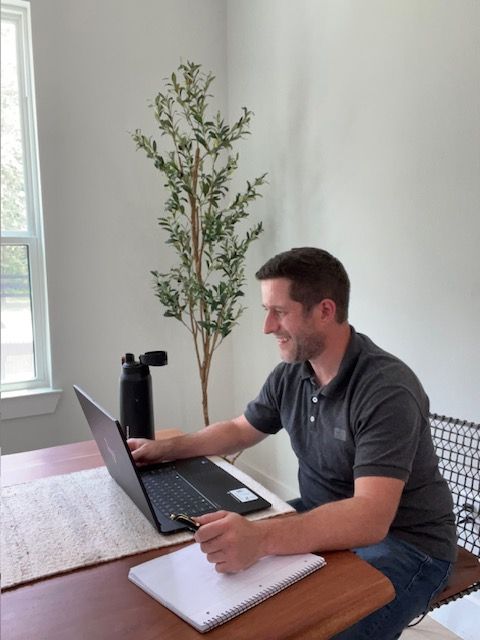
What should our readers know about your business?
During the Covid-19 Pandemic, I started working with online therapy platforms. I found that it was very convenient for me to be self-employed working from home, or anywhere. In 2024, I decided to start Legend Counseling. While there are benefits to seeing a therapist in-person, I could provide telehealth therapy services for people who either do not have easy access to therapy services or would not go to therapy, face-to-face. I have found that online counseling opened my business to an entire state, not just a city or county. I found a way to make my business work even in a challenging situation. Currently, because of telehealth therapy, I am licensed and seeing clients in Texas, Indiana, and Florida. I use evidence-based, strengths-based, and trauma-informed therapies. I treat a wide range of mental health disorders, and specialize in anxiety, depression, trauma, addiction, men’s issues, sexual dysfunction, and anger management. I am also a provider for the AgriSafe network.
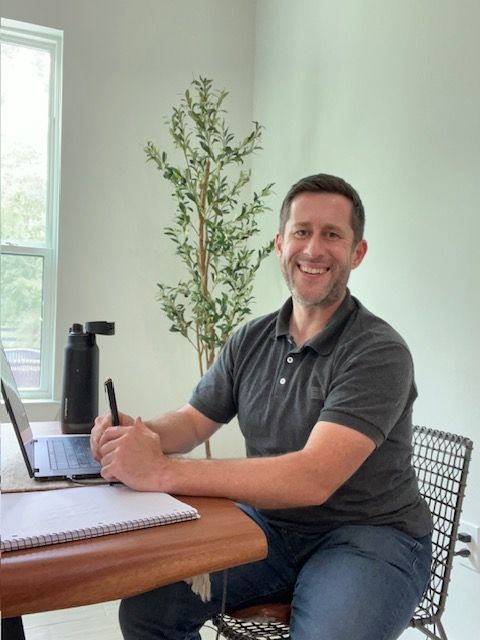
Any places to eat or things to do that you can share with our readers? If they have a friend visiting town, what are some spots they could take them to?
My favorite spot is my backyard and I think I make a great steak or barbeque. But, if I had to make some recommendations, away from home, some of my favorite spots around city are Lake Conroe, the W. G. Jones State Forest, the Houston Rodeo, the Houston Escape Room, catching a Space Cowboys minor league baseball game, and any Range USA location. For food, depending on much you want to spend, my favorite restaurant would be Pappa Bros. Steakhouse. I’d recommend Perry’s Steakhouse, especially their Friday Porkchop Lunch. Ninfa’s is also great!
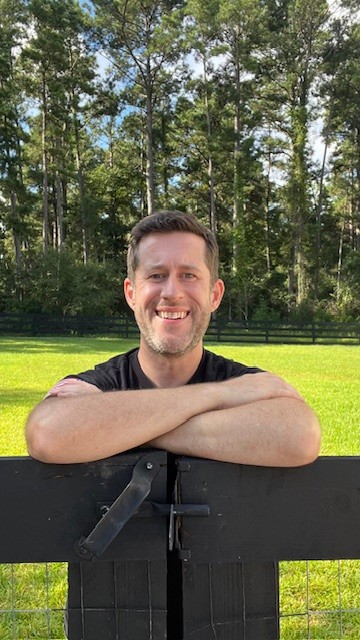
Shoutout is all about shouting out others who you feel deserve additional recognition and exposure. Who would you like to shoutout?
First and foremost, I would like to thank my wife—who is my love, support, companion, and motivation to launch Legend Counseling. I could not have achieved this success without her. I would also like to acknowledge my family and friends. My friend and webpage designer, Ben Davidson, owner of Lush Digital. His services can be found at https://www.lushdigital.agency. He has been a great resource for marketing, inspiration, and encouragement. Some of the books that have influenced my practice are “Mindfulness” and “Counterclockwise”, by Ellen Langer, “The Confidence Gap”, by Russ Harris, “Brain Energy” by Christopher M. Palmer, MD, and “Man’s Search for Meaning”, by Viktor Frankl, and many, many more.
Website: https://www.legendcounseling.health
Instagram: https://www.instagram.com/legend_counseling
Linkedin: https://www.linkedin.com/public-profile/settings?trk=d_flagship3_profile_self_view_public_profile
Facebook: https://www.facebook.com/profile.php?id=61555966516128
Youtube: https://www.youtube.com/channel/UCIajI0oJXEn0EJUQyGenoRA
